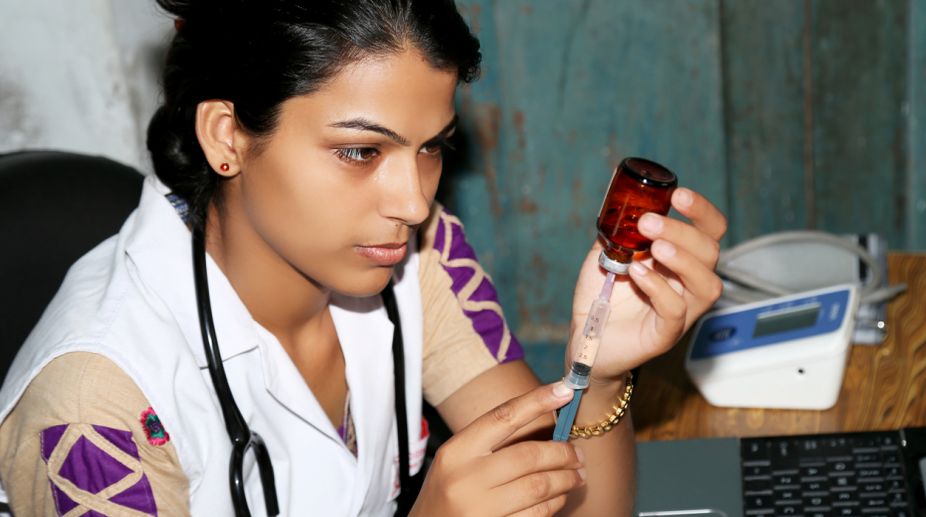A solar unmanned vehicle to monitor water pollution
Water pollution monitoring is a big challenge especially in remote areas. It will not only monitor surface water pollution but also serve many other purposes.
World Immunization Week is a global public health campaign to raise awareness and increase rates of immunisation against vaccine-preventable diseases around the world. It takes place each year during last week of April.

Representational image (Photo: Getty Images)
West Bengal Chief Minister Mamata Banerjee on the commencement of World Immunization Week said “Parents must ensure that their children receive vaccines, because vaccines work”.
The Chief Minister in a tweet said, “World Immunization Week begins today. I am happy to share that 94% children in #Bengal are now fully immunised. Parents must ensure that their children receive vaccines, because #VaccinesWork”.
World Immunisation Week begins today. I am happy to share that 94% children in #Bengal are now fully immunised. Parents must ensure that their children receive vaccines, because #VaccinesWork
Advertisement
— Mamata Banerjee (@MamataOfficial) April 24, 2018
World Immunisation Week is a global public health campaign to raise awareness and increase rates of immunisation against vaccine-preventable diseases around the world. It takes place each year during last week of April.
The goal of World Immunisation Week is to raise public awareness of how immunisation saves lives, and support people everywhere to get the vaccinations needed against deadly diseases for themselves and their children.
As per the WHO, this year’s theme is: “Protected Together, #VaccinesWork”, encourages people at every level – from donors to the general public – to go further in their efforts to increase immunisation coverage for the greater good.”
The goal of World Immunisation Week 2018 is to urge greater action on immunisation around the world, with a particular focus on spotlighting the role that everyone can play in this effort, from donors to individuals.
As part of the 2018 campaign, WHO and partners aim to:
Highlight the ways in which everyone – from donors to individuals – can and must drive vaccine progress.
Expanding access to immunisation is crucial to achieving the Sustainable Development Goals. Routine immunisation is a building block of strong primary health care and universal health coverage—it provides a point of contact for health care at the beginning of life and offers every child the chance at a healthy life from the start.
Immunisation is also a fundamental strategy in achieving other health priorities, from controlling viral hepatitis, to curbing antimicrobial resistance, to providing a platform for adolescent health and improving antenatal and newborn care.
Advertisement